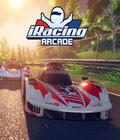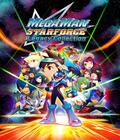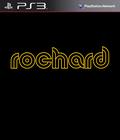At first glance, Rochard's hero isn't what you'd expect to find in a modern game. He's not brawny or well built. He's not young, and he isn't a military figure. He doesn't possess special powers, he doesn't have a special costume and he isn't a master of sneaking around. John Rochard is as blue collar as you can get in a sci-fi setting. Fortunately, he stars in a game that is very well done.
The plot is quite typical of most sci-fi outings. John is a space miner working for Skyrig, a mining company that's constantly searching for useful new elements. Unfortunately for him, the past four years have been spent discovering nothing of value. On the verge of being fired, his team finally makes a discovery, but before he can report the results, his team is attacked by invading forces. Taking up his mining equipment, Rochard travels through the base to stop the pirates and protect the new mineral, but he also stumbles upon something unexpected.
Players will feel the Metroid/Castlevania: Symphony of the Night vibe as soon as they hit the pseudo-tutorial level. You'll be involved in searching for upgrades, such as increased charge capacity and mining laser heat dampeners. Players also have to search for health stations to increase the maximum health bar and stations to refill the available charges. There's also the sense that the area is yours to explore as you see fit — once you have the proper abilities.
For better or for worse, the game doesn't completely ape those two standard-bearers or, for that matter, the more recent Shadow Complex or Monster Tale. That sense of exploration diminishes when you realize that doors lock behind you after a while with no way to open them back up. In a way, the sense of exploration is limited to small chunks, and that's further emphasized by the fact that one cannot freely go back and forth between the environments in the game's five chapters. Thankfully, saving can be done at checkpoints, and the game is rife with them. A checkpoint seems to appear after almost every major puzzle in the game, so you won't have to retrace your steps too much.
Another big difference is in its emphasis on puzzles as opposed to combat. You'll still fight off enemies and turrets, but it's not as if you face them all the time. Most of the puzzles involve something like trying to divert lasers so you don't get cut or using low gravity and crates to get to a high ledge. The puzzles range from amusing to slightly clever; some rely mostly on reflexes, but none are so complex that you'll get overwhelmed.
Rochard can collect and utilize items to solve puzzles, avoid obstructions and kill enemies. Your main weapon may look like a gun, but it surely doesn't behave like a standard firearm. Your G-Lifter becomes an all-purpose tool for just about everything you'll do in the game. At the beginning, it only has the power to lift objects and throw them around. Soon, you'll get the ability to initiate low gravity and fire mining laser bolts, launch charges, and perform low-gravity swings.
There are a few nitpicks. As far as secrets are concerned, there are barely any. You can go after trophy icons that are stashed out of the way, but that's about it. Even then, the trophy icons only lead to unlocking PS3 system Trophies for your profile and nothing more. As mentioned earlier, the limited amount of exploration feels a little cramped. Finally, the game maxes out at the six-hour mark, with no increased difficulty level to be found. It's a decent length for a downloadable game, but it still feels short.
The game soundtrack starts off with synthesized sci-fi style music but changes as you progress. The title screen makes the game feel like a big space opera while the opening cut scene has a country rock song playing while you're flying into the mining site. The voice work is good enough. Everyone delivers their lines well, though the main characters are responsible for serious dialogue. The incidental ones, like the security guards and space pirates, spout a few humorous lines, but you aren't likely to hear them through the laser fire. When you do, the dialogue isn't what would be considered high-class stuff, but it is good enough to not grate on your nerves.
Rochard is graphically impressive at times and above average in others. The whole game is constructed in 3-D but with a fixed 2-D perspective that sometimes zooms in and out on the main character, depending on the scene. There's some depth in that you'll see lots of things moving in the background, but the occasional blurred object in the foreground nicely accents the idea. The cartoon look of the characters is complemented nicely by the animations, which are smooth but not overdone. The physics system also handles well, and the particle effects don't look out of place even though there aren't too many. Overall, it's a nice-looking game with a very solid frame rate.
For the most part, the controls are easy to manipulate. Your face buttons handle the basics like jumping, melee and switching the gun mode. The left thumbstick moves Rochard, and the right thumbstick handles aiming. The triggers, interestingly enough, get used a lot with R2 doing the shooting, R1 for placing a captured object, L1 activating low gravity when held down and L2 performing crouches. The controls are mostly fine, and right stick aiming is more precise when shooting or grabbing and throwing objects. It becomes cumbersome when you want to perform something like a low-gravity boost jump. The move requires you to have low gravity activated while having a crate in your possession. You must jump in the air, aim in the opposite direction of your jump, and throw the crate so the recoil can propel you higher. This means holding down L1, moving either left or right with the left thumbstick, aiming either down left or down right with the analog stick after hitting the X button to jump and then hitting R2 to fire the crate. Unless you have good thumb speed, this means you'll want to pre-aim the crate shot, using the thumb to aim, the index finger to hit the X button and using the middle finger to fire the shot. Just like Monster Hunter players have gotten accustomed to the claw technique, Rochard players will adapt to this finger setup, but that doesn't mean that it isn't odd.
Rochard is a very good side-scrolling adventure game. It puts up a well-balanced mix of combat and puzzles despite the dampened focus on exploration. The controls may be finger-bending at times, but it is a looker and has a great soundtrack to boot. It is a short adventure that's fun to experience. At $10, it's a game that adventure fans should play without hesitation.
Score: 8.0/10
More articles about Rochard











 Rochard is all about the heroic space adventures of astro-miner John Rochard as he manipulates gravity in inventive ways to solve puzzles, defeat enemies and bring down the most evil of bosses.
Rochard is all about the heroic space adventures of astro-miner John Rochard as he manipulates gravity in inventive ways to solve puzzles, defeat enemies and bring down the most evil of bosses. 




















